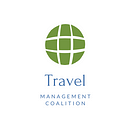Business Travel’s Role in U.S. Economic Recovery
By Peter Vlitas
The May 2021 jobs report revealed that the United States added 559,000 jobs last month. In normal times, the addition of over a half-million jobs in just a single month would be met with economy-wide enthusiasm. But in our COVID-stricken reality, the U.S. still remains 7 million jobs below pre-pandemic employment levels, and the May report demonstrates that the country is failing to meet expectations.
For those in the travel industry, the April and May jobs reports were hardly surprising. How can we expect the U.S. economy to grow exponentially while the travel sector — especially business travel — continues to endure historic lows?
According to the Global Business Travel Association, there were more than 400 million business trips in the U.S. alone in 2019. Once COVID-19 spread across the globe in April 2020, 92 percent of the organization’s members reported their customers canceling or suspending all or most domestic travel, a figure that jumped to 98 percent for international travel. Still today, business travel remains down 60 to 90 percent in various markets, and the industry’s job losses have been staggering. The travel management industry has been particularly hard hit, with employment remaining down as much as 65%. This is largely due to federal travel restrictions, including blanket quarantine requirements and countywide travel restrictions, that either prohibit — or diminish the purpose of — traveling for business (and leisure).
Unfortunately, the importance of business travel to the U.S. economy is often overlooked since its ripple effects throughout the economy are not always obvious. The impacts of business travel take two forms. The first is the business activity spurred directly by travel. This includes corporate spending across an array of sectors, such as air transport, hotels, taxis, car rentals, train transport, restaurants, bars, and event planning.
Business travelers are vital for these sectors, not only in traffic but in profitability, i.e., they typically spend more. Business travel is a critical pillar of the airline industry because business travelers are more likely to purchase higher fares, hold airline credit cards, and buy airport lounge memberships. Remarkably, the top 10% to 15% of airline customers typically account for about 40% of revenue. Bank of America estimates business trips contributed $334 billion to the entire travel industry’s $1.1 trillion in revenue last year. Likewise, the success of major hotel chains hinges on business travel, which accounts for almost 70 percent of revenues for Marriott International and Hilton.
The second form of economic impacts are indirect. These include the benefits of business travel on company performance and the broader economy through improved productivity. Productivity improvements may take various forms including new sales, customer retention, networking, employee satisfaction, and collaboration.
The importance of business and social networks in generating international trade is also recognized in economics literature, since face-to-face meetings are more effective for helping people build and maintain networks. Additionally, new research from Harvard’s Growth Lab finds that business travel can bolster the growth of new and existing industries in countries through the diffusion of specialized knowledge.
In total, domestic and international business travelers in the U.S. directly spent $334.2 billion in 2019, supporting 2.5 million jobs, according to the U.S. Travel Association. But when accounting for the indirect effects, U.S. Travel estimates the economic output and jobs supported by business travel were roughly double those figures before the pandemic.
For these reasons, it is imperative that Congress and President Biden’s administration recognize that the recovery of the broader U.S. economy is inextricably intertwined with that of business travel. Steps must immediately be taken to ensure a safe, effective revitalization of domestic and international travel, and this process can only begin when several key policy outcomes are achieved.
In particular, the Biden Administration must follow our European allies’ lead by abandoning the status quo — comprised of blanket quarantine requirements and countrywide travel bans — in favor of a science-backed, risk-based approach flexible enough to respond to the ever-changing nature of this crisis.
This latter approach would consist of lifting 212(f) travel bans on the U.K. and Europe, while maintaining a digitally-supported international testing mandate coupled with existing masking requirements and biosafety measures. The Administration should also facilitate a swift, effective rollout of private sector-driven digital health credentials for vaccine and testing verification, so that the air travel system does not have to rely on easily-exploitable paper certificates, the review of which are often labor intensive and inefficient for the system to administer.
What is also desperately needed from the federal government is transparency and a discernible path out of this crisis. Congress and the Biden Administration must work quickly with the travel industry to establish clear, risk-based benchmarks that would enable a safe, managed return to normalcy in the air travel system. For example, at what point will a particular country’s share of vaccinated people be high enough — and the rate of COVID-19 transmission be low enough — to warrant excluding their departures into the U.S. from CDC’s quarantine guidance? And finally, based on vaccine efficacy against COVID-19 variants, the U.S. should consider exempting fully-vaccinated travelers from international testing requirements.
The policy changes outlined would lift business travel and the $2.6 trillion travel industry at-large out of an unprecedented depression. By allowing companies to capitalize on the benefits of business travel once again, the nation can hasten our economic recovery and get this crisis behind us.
Peter Vlitas is the SVP of Airline Relations at Internova Travel group and is writing on behalf of the Travel Management Coalition (TMC). TMC represents thousands of U.S.-based travel agents and services millions of corporate and leisure travelers.
